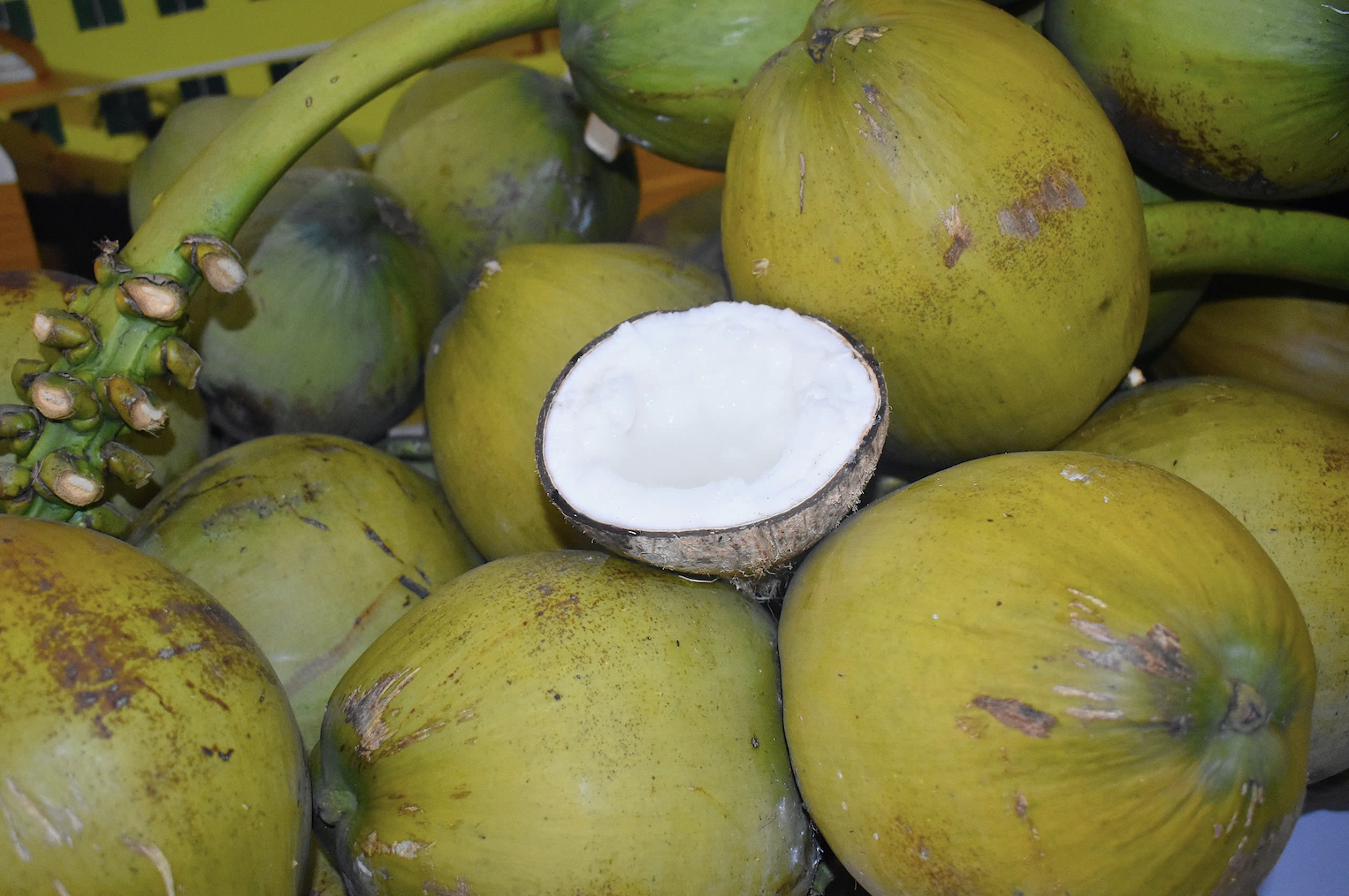
At the "Connecting Coconut Production and Consumption" forum on December 13, Nguyen Thi Thanh Thuy, Director of the Department of Science, Technology, and Environment under the Ministry of Agriculture and Rural Development, highlighted that coconuts are one of Vietnam’s six key industrial crops as outlined in the development plan for key crops through 2030 (which also includes coffee, rubber, tea, cashew, and pepper).
Vietnamese coconuts are now a high-value export commodity. Products derived from coconuts hold great potential for increasing the crop's value and boosting farmer incomes.
In 2023, Vietnam's coconut industry achieved a record export value of $900 million. This year, export turnover is expected to surpass the $1 billion mark, positioning coconuts as Vietnam’s newest billion-dollar agricultural sector with significant potential to expand export markets.
However, Nguyen Thi Kim Thanh, Chairwoman of the Vietnam Coconut Association, warned that the domestic coconut processing industry is facing a severe raw material shortage.
Despite significant investments in facilities and factories in Ben Tre Province, the supply of raw coconuts is insufficient to sustain factory operations. Many enterprises have had to shut down or operate at just 10–15% capacity.
In recent years, dried coconuts have been exported to China with a 0% tax rate. Many companies have established facilities to pre-process coconuts before exporting them to China for further processing. This trend has severely impacted the availability of raw coconuts for domestic enterprises.
To protect domestic resources and attract investment in deep processing, Chairwoman Thanh cited Indonesia, a leading dried coconut exporter, which will implement an 80% export tax on coconuts starting January 1, 2025.
“If Vietnam doesn’t quickly introduce tax policies or tariff barriers to retain raw coconut supplies for its domestic processing industry, the sector is bound to decline,” Thanh warned.
Le Thanh Hoa, Deputy Director of the Department of Quality, Processing, and Market Development, emphasized that enterprises must develop strategies to increase product prices in export markets. The additional profits should be used to support farmers rather than relying on cheap raw materials for low-cost exports.
“Where is the profit from coconuts? It’s time for us to compete on quality, not just lower prices,” Hoa said.
Nguyen Phong Phu, Technical Director of Vina T&T Group, addressed a pressing issue: the fraudulent use of planting area codes (MSVT) and packaging facility codes (CSĐG) in the coconut and agricultural sectors.
Many organizations, after obtaining MSVT codes, resell or lease them, leading to misrepresentation of product origins. Some farming areas fail to maintain production standards, resulting in violations of phytosanitary and food safety regulations.
Such practices not only degrade the quality of exports but also prompt stricter controls or even import suspensions by countries such as China. This harms both farmers and legitimate businesses, undermines Vietnam’s national reputation, and hinders market expansion.
Phu suggested digitizing management systems for MSVT and CSĐG codes to ensure traceability from production to export. Authorities must crack down on fraudulent activities while raising awareness among farmers and businesses about protecting Vietnam’s agricultural brand.
Phan Thi Thu Hien, Director of Post-Import Plant Quarantine Center 2, noted that opening new export markets often requires lengthy negotiations. For instance, it took Vietnam 10 years to gain access to the U.S. market for mangoes.
"Participation in export chains requires compliance with importer conditions, or even exceeding them," Hien said. She stressed that obtaining planting area and packaging codes is only the first step; maintaining the reputation of individual companies, farming regions, and Vietnamese agricultural products is critical.
Repeated violations could lead to increased barriers or outright import bans by trading partners, Hien cautioned.
At the Vietnam Fruit Festival held recently in Beijing, foreign companies with substantial resources expressed interest in penetrating the Vietnamese market. This indicates that competition will become even fiercer.
Deputy Director Hoa was shocked to learn that fresh coconuts can sell for as low as 1,000 VND per fruit. To avoid repeating the "bumper harvest, low price" cycle, he urged collaboration among stakeholders to ensure fair benefits for farmers and sustainable development for the coconut industry.
Tam An